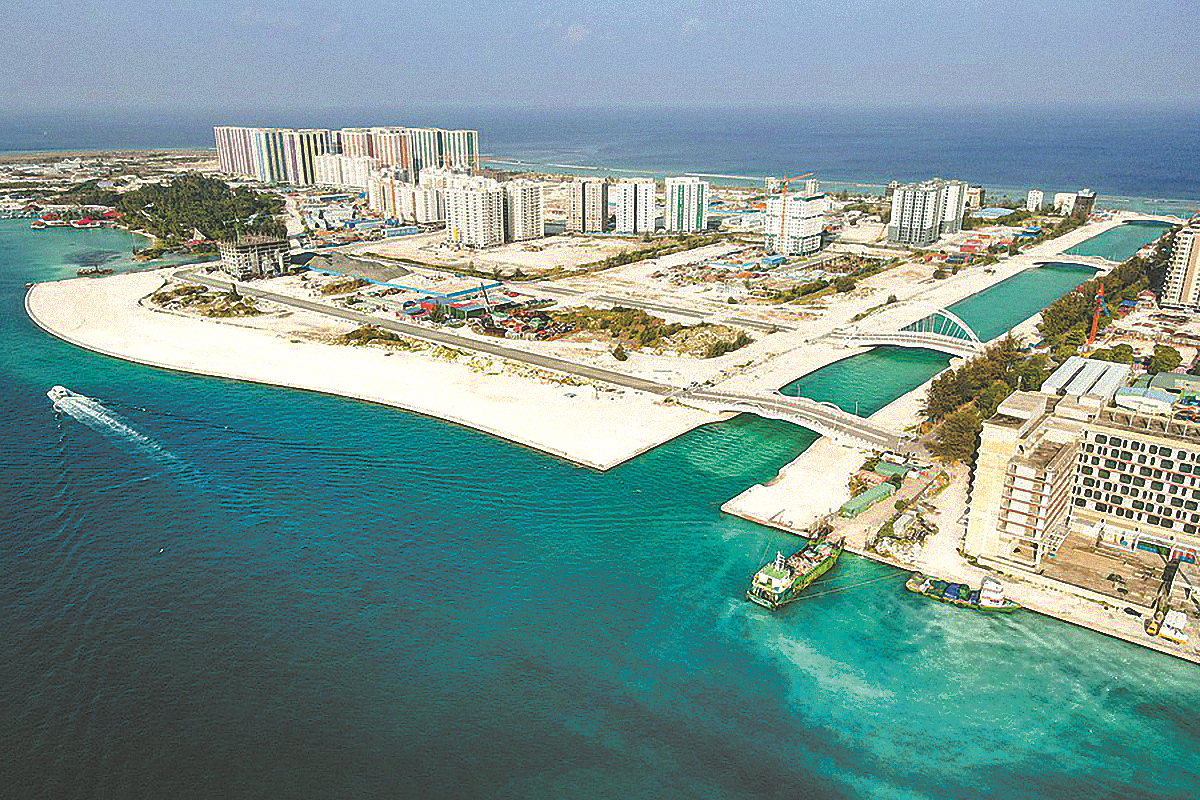BRI ties inject strong impetus into global growth


BEIJING — Cooperation under the Belt and Road Initiative has been a key force driving global growth over the past decade as the global economy faces mounting challenges, including a sluggish recovery and rising protectionism.
Remarkable achievements have been made in boosting trade and investment, improving global industrial and supply chains, and promoting more balanced development since the BRI was proposed in 2013, experts said.
Infrastructure investment and the facilitation of trade and investment are two major drivers of faster global economic growth and the BRI has made enormous contributions in both aspects, said He Weiwen, an expert with the China Association of International Trade.
From 2013 to 2022, the cumulative value of imports and exports between China and BRI countries amounted to $19.1 trillion, with an average annual growth rate of 6.4 percent, according to a white paper released by the State Council Information Office on Oct 10.
Cumulative two-way investment between China and partner countries came in at $380 billion during the period, including some $240 billion from China, the white paper said.
Over 3,000 BRI cooperation projects have been launched in the past decade, involving close to $1 trillion of investment. Many of these projects, such as railways, bridges and pipelines, have helped build an infrastructure network that connects subregions in Asia as well as the continents of Asia, Europe and Africa.
By improving infrastructure connectivity, BRI cooperation can reduce international trade costs and enable underdeveloped countries, especially those that are landlocked, to participate in global trade and seek economic development, said Liu Nanxing, an expert on international cooperation at the National Development and Reform Commission.
Interconnected infrastructure under the BRI framework has played an important role in maintaining the stability and smooth flow of global industrial and supply chains, said Hu Biliang, executive director of the Belt and Road School at Beijing Normal University.
Moreover, it has provided the energy and transport facilities much needed by underdeveloped and developing countries to allow them to participate in global industrial and supply chains, Hu said.
By the end of June, China had signed agreements on industrial capacity cooperation with more than 40 countries. More than 70 overseas industrial parks had been built by Chinese enterprises together with governments and enterprises in partner countries, according to the white paper.
Citing research results from the World Bank, Wang Lei, a scholar with the School of Government at Beijing Normal University, said the proposed BRI transportation network and resulting increase in foreign direct investment can increase BRI countries' GDP growth by 0.09 percentage point, including a rise of 0.23 percentage point in sub-Saharan Africa.
By involving countries in different regions, at different development stages and different cultures, the BRI has pursued open and inclusive growth at a time when globalization dominated by only a few developed countries has led to imbalanced economic development, experts say.
"The BRI is a key platform for galvanizing the global economy," said Wang Fan, president of China Foreign Affairs University, who pointed to a throng of challenges facing global growth prospects, including rising protectionism and volatility in the international landscape.
The BRI does not target any party or seek to form cliques, nor does it attempt to decouple or sever supply chains, Wang said, adding that it pursues the common development of humanity instead, with great vitality and influence.
China has so far signed more than 230 BRI cooperation agreements with more than 150 countries and 30 international organizations across five continents. The World Bank has estimated that by 2030, BRI-related investments could lift 7.6 million people out of extreme poverty and 32 million out of moderate poverty.
Xinhua




































